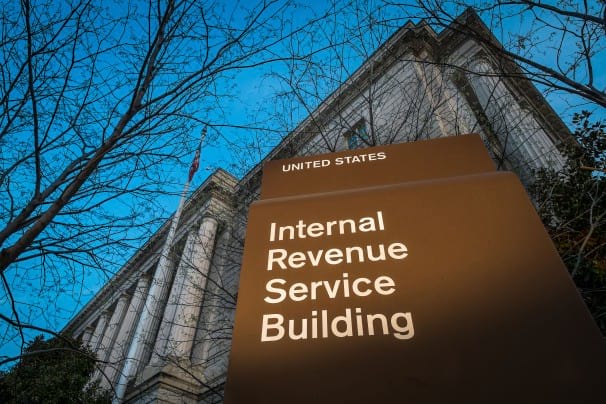When taxpayers hear the term “offer in compromise” (OIC), they generally regard this as a way to settle with the IRS for less than what is owed. Typically, OICs fall under “doubt as to collectibility” meaning that the OIC is submitted because the taxpayer is unable to pay the entire tax debt based on their financial situation. However, taxpayers may also be able to settle their tax debt if there is a serious doubt as to whether the tax debt is correct (calculation error, missed audit, etc.). In this blog, we will discuss how a doubt as to liability OIC may be an alternative to resolving your tax issue.
What is doubt as to liability?
According to Treasury Regulation (Treas. Reg.) § 301.7122-1(b)(1), doubt as to liability exists when there is an actual dispute as to whether the amount of the tax debt owed is correct or if the tax debt should have been assessed at all. Again, there must be legitimate doubt as to whether the taxpayer owes all or part of the tax debt.
Note: Doubt as to liability does not exist when the tax debt has been established by a final court decision or a judgment related to the amount of the tax liability or whether the liability actually exists (if you went to Tax Court and lost).

In addition to having doubt as to whether the liability exists or the amount is correct, there must also be supporting evidence to create that doubt. In other words, you can’t just say I don’t agree with the amount that has been assessed and then have no documentation to back up why you don’t agree. This documentation and the position taken is what should create legitimate doubt for both the taxpayer and the IRS. What this means is that the evidence presented must be able to change the viewpoint of the IRS on whether they made the correct assessment.
Note: It’s important to know that doubt as to liability OICs are conducted in a way similar to an audit reconsideration, according to Internal Revenue Manual (“IRM”) § 4.18.2.4.
Along with the supporting evidence, there must be a written statement from the taxpayer or their representative explaining why all or a portion of the tax debt assessed is incorrect.
All of this information needs to be submitted along with a completed form 656-L Doubt As To Liability Offer In Compromise.
Doubt as to collectibility vs. doubt as to liability
As discussed above, there is more than one type of offer in compromise you can submit. However, you want to make sure you submit the offer that best fits your position. A doubt as to collectibility OIC is used when you are not disputing the amount of the tax debt that is owed. Instead, you are simply showing that based on your current financial situation or reasonable collection potential that you do not have the means to pay back the tax debt. For more information on doubt as to collectibility OICs, see our blog IRS Offer In Compromise Qualifications and Requirements For Acceptance.

A doubt as to liability OIC is used when you are actually disputing the amount of the tax debt owed or whether the tax debt should exist at all. Your financial situation plays no part in this process, rather the evidence you can use to show doubt is what will be used to have your OIC accepted.
You are also unable to submit both types of OICs at the same time. According to form 656-L, it is in your best interest to try and resolve any disputes you have about the validity of the tax debt before submitting a doubt as to collectibility OIC. If both are submitted at the same time, the doubt as to collectibility OIC will be returned.
Situations where doubt as to liability offers are applicable
First, doubt as to liability OICs are used only after the allotted time for disputing the assessment of a tax debt has expired. Typical situations where a doubt as to liability may occur are when there was a mistake in interpreting the tax law, an examiner failed to consider evidence that was presented, or new evidence was obtained that would constitute a change to the assessment.
In the case where false information regarding wages paid to a taxpayer or false reporting of the value of stocks created a liability for a taxpayer, a doubt as to liability OIC may be applicable. The false information would of course need to be uncovered first and then a claim for refund be filed. If the claim for refund is denied then submitting a doubt as to liability OIC would be an option.

Also, when a taxpayer is audited but, due to circumstance beyond the taxpayer’s control, they were unaware or unable to attend the audit and all items being audited were disallowed, causing a tax debt, a doubt as to liability OIC may be applicable. The taxpayer would of course need to be able to gather their evidence to support the items that were audited and if they are still able to file for an audit reconsideration the IRS wants you to go through this process first (but it is generally not required).
Another example of when to use a doubt as to liability OIC may come after being assessed trust fund recovery penalties. If the IRS deems a taxpayer a responsible party for trust fund recovery penalties and that taxpayer at the time of assessment is not able to provide evidence to prove they are not a responsible party, they could potentially pursue a doubt as to liability OIC. This of course would only be possible if they later find evidence to prove they were not in fact a responsible party and should not have been assessed the trust fund recovery penalties. For more information on trust fund recovery penalties see our blog, Trust Fund Recovery Penalties and How You Can Be Personally Liable.
Conclusion
A doubt as to liability OIC is not for everyone. It is important to review your situation first to determine what route will best resolve your tax issue. If you determine that you have enough supporting evidence to prove that the amount of tax debt that was assessed is incorrect or that the tax debt shouldn’t have been assessed at all, you may have a case. Remember you typically should exhaust all other options for disputing the assessment of the tax debt before submitting a doubt as to liability OIC. Furthermore, these types of offers can be even more complicated than a doubt as to collectibility offer and it is generally recommended to seek legal representation/advice when pursuing this type of OIC.
Related Articles
